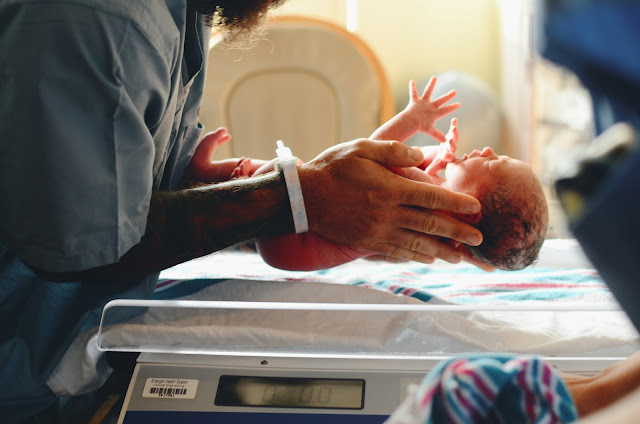Complications in Pregnancy - An Overview
Introduction
Pregnancy is often celebrated as a joyous time in a woman's life, filled with anticipation and excitement. However, it's important to acknowledge that pregnancy can also bring about various complications that can pose risks to both the mother and the baby. Understanding these complications is crucial for ensuring a safe and healthy pregnancy journey.
Understanding Pregnancy Complications
Pregnancy complications encompass a wide range of health issues that can arise during pregnancy, potentially impacting the health and well-being of the mother or the developing fetus. These complications can stem from a multitude of factors, including maternal health conditions, genetic predispositions, lifestyle choices, and environmental influences.
Types of Pregnancy Complications
Gestational Diabetes
Gestational diabetes is a form of diabetes that develops during pregnancy. It occurs when the body cannot produce enough insulin to meet the increased demands of pregnancy, leading to high blood sugar levels. This condition requires careful management to prevent complications for both the mother and the baby.
Pre-eclampsia
Pre-eclampsia is a serious condition characterized by high blood pressure and signs of damage to other organ systems, such as the liver and kidneys. It typically arises after the 20th week of pregnancy and can lead to severe complications if left untreated, including eclampsia, which involves seizures.
Ectopic Pregnancy
An ectopic pregnancy occurs when the fertilized egg implants outside the uterus, most commonly in the fallopian tube. This condition is not viable and poses a significant risk to the mother's health, often requiring prompt medical intervention to prevent life-threatening complications.
Placenta Previa
Placenta previa occurs when the placenta partially or completely covers the cervix, obstructing the baby's path during delivery. This condition can cause severe bleeding during labor and delivery, necessitating careful monitoring and potentially a cesarean section.
Symptoms of Complications
Symptoms of pregnancy complications can vary widely depending on the type of complication but may include:
- Persistent high blood pressure
- Swelling in the hands, feet, or face
- Vaginal bleeding or spotting
- Abdominal pain or cramping
- Persistent headaches or visual disturbances
- Decreased fetal movement
Diagnosis and Monitoring
Early detection and monitoring of pregnancy complications are crucial for effective management. Healthcare providers utilize a variety of diagnostic tools and tests, including blood pressure monitoring, blood tests, ultrasound scans, and fetal monitoring, to assess the health of both the mother and the baby throughout pregnancy.
Treatment and Management
The treatment and management of pregnancy complications depend on the specific condition and its severity. Treatment may involve medication, dietary changes, lifestyle modifications, and in some cases, hospitalization or surgical intervention. Close monitoring by healthcare professionals is essential to ensure the best possible outcome for both the mother and the baby.
Lifestyle Changes and Prevention
While not all pregnancy complications are preventable, adopting a healthy lifestyle before and during pregnancy can help reduce the risk of certain complications. This includes maintaining a balanced diet, staying physically active, avoiding harmful substances like tobacco and alcohol, managing stress levels, and attending regular prenatal check-ups.
Emotional Support During Complications
Dealing with pregnancy complications can be emotionally challenging for expectant mothers and their families. It's essential for individuals experiencing complications to seek emotional support from loved ones, healthcare professionals, or support groups to cope with the stress, anxiety, and uncertainty that may arise.
Importance of Prenatal Care
Regular prenatal care is critical for monitoring the progress of the pregnancy, detecting any potential complications early, and implementing appropriate interventions to optimize maternal and fetal health. Prenatal care provides an opportunity for healthcare providers to educate expectant mothers about healthy behaviors and address any concerns or questions they may have.
Partner's Role and Support
Partners play a crucial role in supporting expectant mothers during pregnancy complications. Providing emotional support, accompanying them to medical appointments, assisting with household tasks, and advocating for their needs are all ways partners can help alleviate some of the stress and burden associated with complications.
Medical Interventions and Procedures
In cases where pregnancy complications pose significant risks to the health and safety of the mother or the baby, medical interventions or procedures may be necessary. These interventions may include cesarean delivery, induction of labor, administration of medications to control blood pressure or blood sugar levels, or surgical procedures to address specific complications.
Risks and Complications During Labor
Despite careful monitoring and management during pregnancy, complications can still arise during labor and delivery. These may include prolonged labor, fetal distress, umbilical cord prolapse, placental abruption, or postpartum hemorrhage. Healthcare providers are trained to recognize and respond to these complications promptly to minimize risks and ensure safe delivery.
Postpartum Care
Postpartum care is essential for monitoring the mother's physical and emotional well-being after childbirth. This includes regular check-ups with healthcare providers, support with breastfeeding, screening for postpartum depression or anxiety, and assistance with newborn care. Adequate postpartum care helps ensure a smooth transition to motherhood and promotes optimal recovery and bonding with the newborn.
Conclusion
While pregnancy complications can be daunting, expectant mothers need to remember that they are not alone. With proper medical care, support from loved ones, and adherence to healthy lifestyle practices, many complications can be effectively managed, allowing for a safe and positive pregnancy experience. By staying informed, proactive, and resilient, expectant mothers can navigate pregnancy complications with confidence and optimism, ultimately welcoming their newborn into the world with joy and gratitude.
FAQs
Are all pregnancy complications preventable?
While many pregnancy complications can be minimized or managed with proper prenatal care and lifestyle adjustments, some may still occur despite these efforts due to factors beyond control.
How common are pregnancy complications?
The prevalence of pregnancy complications varies, with some being relatively common, such as gestational diabetes and pre-eclampsia, while others are less frequent but may still pose significant risks.
Can pregnancy complications recur in subsequent pregnancies?
Yes, some pregnancy complications may recur in subsequent pregnancies, especially if they are related to underlying health conditions or genetic factors. However, proper medical management and monitoring can help mitigate risks.
What should I do if I experience symptoms of a pregnancy complication?
If you experience any concerning symptoms during pregnancy, such as persistent headaches, abdominal pain, or changes in fetal movement, it's essential to contact your healthcare provider immediately for evaluation and guidance.
How can I support a loved one experiencing pregnancy complications?
Providing emotional support, offering practical assistance with daily tasks, accompanying them to medical appointments, and actively listening to their concerns are all meaningful ways to support a loved one during pregnancy complications. Encouraging open communication and validating their feelings can also help alleviate stress and anxiety.



Comments
Post a Comment